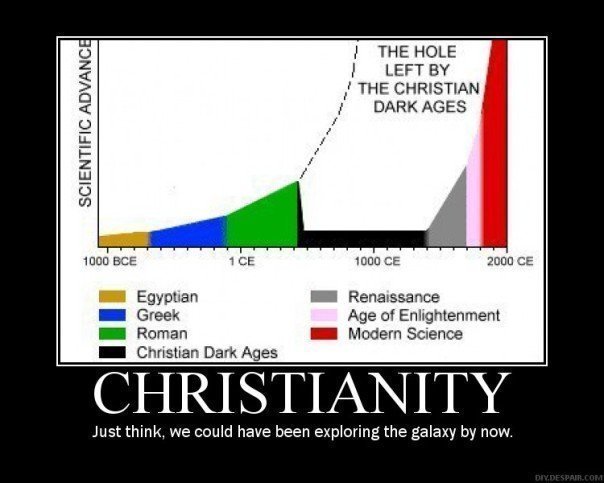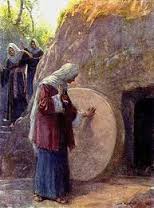I was raised Catholic in England. I decided at around age 15 that there was not actually any good reason for believing in God, so I stopped.
But I've always been interested in the influence the Bible has on the lives of people. It's really a mish-mash of mixed messages, often quite horrific messages in the Old Testament. But many people claim to use it as the foundation of their philosophical and moral world view. Yet I feel that the most effective argument against Christianity for many people comes from a full reading of the Bible from beginning to end, so you can really get a sense for what's going on in there. The stories on exchristian.com have several examples of this.
What I was wondering, is what the Bible's advice or opinions on Skepticism and Debunking might be. So I had a trawl. I'd noticed in 2 Peter 3:3 that the word "scoffer" or "mocker" (Greek ἐμπαῖκται, empaiktai = mocker or deceiver), was used for one who demands evidence of the second coming. The bible writer here seems to be warning against those who would doubt what it says. Jude also repeats this.
It's interesting then to see all the instances of this word, and what the Bible is saying. In many instances it reminds me of debates between believers and skeptics - and more often of discussions that believers have amongst themselves.
2 Peter 3:3 Know this first of all, that in the last days mockers will come with their mocking, following after their own lusts, and saying, “Where is the promise of His coming? For ever since the fathers fell asleep, all continues just as it was from the beginning of creation.”
The most famous skeptic in the bible is Doubting Thomas, who gets very little support for his skepticism.Jude 1:17-19 But you, beloved, ought to remember the words that were spoken beforehand by the apostles of our Lord Jesus Christ, that they were saying to you, “In the last time there will be mockers, following after their own ungodly lusts.” These are the ones who cause divisions, worldly-minded, devoid of the Spirit.
This is the key to the approach of the Bible. Doubt is seen as sinful. Asking for evidence is being weak minded. You are most blessed if you believe without evidence. The bible writers know that there is no real evidence to support their claims, so they try to turn this into a benefit, saying it's better to have no evidence. This quite cleverly dissuades people from seeking evidence, as clearly they will become less blessed if they find evidence. The less evidence they have, the more blessed they will be. The less grounded their belief is in reality, the better. It's anti-skeptical.John 20:24-29 But Thomas, one of the twelve, called Didymus, was not with them when Jesus came. So the other disciples were saying to him, “We have seen the Lord!” But he said to them, “Unless I see in His hands the imprint of the nails, and put my finger into the place of the nails, and put my hand into His side, I will not believe.”
After eight days His disciples were again inside, and Thomas with them. Jesus came, the doors having been shut, and stood in their midst and said, “Peace be with you.” Then He said to Thomas, “Reach here with your finger, and see My hands; and reach here your hand and put it into My side; and do not be unbelieving, but believing.” Thomas answered and said to Him, “My Lord and my God!” 29Jesus said to him, “Because you have seen Me, have you believed? Blessed are they who did not see, and yet believed.”
The resurrection of Jesus is the cornerstone of the Christian faith, and an obvious target for skeptics, who would naturally, even at that time, demand a little more evidence than the say-so of his disciples. Matthew makes quite an effort to get the story straight. First of all the local priests anticipate the disciples would attempt to steal the body, so they ask for the tomb to be sealed and guarded.
Then there's an earthquake, and angel arrives and removes the stone, the guards are made unconscious, and the angel tells the two Marys to get get the disciples, which they do. The disciples arrive and find the empty tomb, then meet Jesus. The guards then go back to the priests and tell them what happened:Matthew 27:57-66 When it was evening, there came a rich man from Arimathea, named Joseph, who himself had also become a disciple of Jesus. This man went to Pilate and asked for the body of Jesus. Then Pilate ordered it to be given to him. And Joseph took the body and wrapped it in a clean linen cloth, and laid it in his own new tomb, which he had hewn out in the rock; and he rolled a large stone against the entrance of the tomb and went away. And Mary Magdalene was there, and the other Mary, sitting opposite the grave.
Now on the next day, the day after the preparation, the chief priests and the Pharisees gathered together with Pilate, and said, “Sir, we remember that when He was still alive that deceiver said, ‘After three days I am to rise again.’ “Therefore, give orders for the grave to be made secure until the third day, otherwise His disciples may come and steal Him away and say to the people, ‘He has risen from the dead,’ and the last deception will be worse than the first.” Pilate said to them, “You have a guard; go, make it as secure as you know how.” And they went and made the grave secure, and along with the guard they set a seal on the stone.
That right there is the root of all conspiracy theories. Don't believe the official story, says the Bible, it's all a plot. Those guys who say that Jesus' body was stolen by his disciples, well they were bribed to say that. How do we know they were bribed? It's in the Bible! When I first read this account in Matthew I almost laughed, as it seemed so transparent that the author was trying to spin a tale. The theft of the body by the disciples seems by far the most obvious and simplest explanation for what happened, and that indeed must have been the prevailing story at the time. Yet Matthew goes to great lengths to discredit the official story, and to create his own highly implausible narrative with implausible earthquakes, mysterious angels, and lying officials. He's like the equivalent of a 9/11 truther.Matthew 28:11-15 Now while they were on their way, some of the guard came into the city and reported to the chief priests all that had happened. And when they had assembled with the elders and consulted together, they gave a large sum of money to the soldiers, and said, “You are to say, ‘His disciples came by night and stole Him away while we were asleep.’ “And if this should come to the governor’s ears, we will win him over and keep you out of trouble.” And they took the money and did as they had been instructed; and this story was widely spread among the Jews, and is to this day.
The Bible does not always look kindly upon seeking wisdom
But when the wisdom fits the Bible narrative, then the the Bible start to sound a little bit like a conspiracy theorist saying "open your eye, don't be a sheeple", with a touch of "wait until 2012/the great cull/the rapture, you'll see!"Ecclesiastes 1:16-18 I said to myself, “Behold, I have magnified and increased wisdom more than all who were over Jerusalem before me; and my mind has observed a wealth of wisdom and knowledge.” And I set my mind to know wisdom and to know madness and folly; I realized that this also is striving after wind. Because in much wisdom there is much grief, and increasing knowledge results in increasing pain.
So I feel it can quite safely be argued that the Bible is very anti-skeptic. "Knowledge" and "Wisdom" consist largely of knowledge of God's will, and not knowledge of the world. The foundational story of the bible is that of Adam and Eve, who are cast out of paradise for the very skeptical act of seeking knowledge - a type of knowledge that the bible warns against.Proverbs 1:22-26 How long will you simple ones love your simple ways? How long will mockers delight in mockery and fools hate knowledge?
If you had responded to my rebuke, I would have poured out my heart to you and made my thoughts known to you. But since you rejected me when I called and no one gave heed when I stretched out my hand,since you ignored all my advice and would not accept my rebuke, I in turn will laugh at your disaster; I will mock when calamity overtakes you
But it's not all bad:1 Timothy 6:20-21 O Timothy, guard what has been entrusted to you, avoiding worldly and empty chatter and the opposing arguments of what is falsely called "knowledge "-- which some have professed and thus gone astray from the faith. Grace be with you.
Proverbs 9:8 is interesting:1 Corinthians 10:15 You are reasonable people. Decide for yourselves if what I am saying is true.
With similar, also in Proverbs:Do not rebuke mockers or they will hate you; rebuke the wise and they will love you.
Now here "mocker" is translated (in NIV) from the Hebrew "lêṣ" (לֵ֗ץ), which in many versions is translated "scorner". Again there is similar circular logic - a "mocker" is anyone who questions the existence of God, while the "wise", or "discerning" are interpreted as "the man who realizes that the fear of God is a necessary condition to the acquiring of wisdom, and who seeks it as a boon at his hands."Proverbs 10:8
The wise in heart accept commands, but a chattering fool comes to ruin.
Proverbs 13:1
A wise son heeds his father's instruction, but a mocker does not respond to rebukes.
Proverbs 15:12
Mockers resent correction, so they avoid the wise.
Proverbs 19:25
Flog a mocker, and the simple will learn prudence; rebuke the discerning, and they will gain knowledge.
The mocker seeks wisdom and finds none, but knowledge comes easily to the discerning.
It's interesting to compare the 2000-year-old language in the Bible with the modern usages of the words "shill" and "troll" (and perhaps to a lesser extent "hater").
Last edited:



